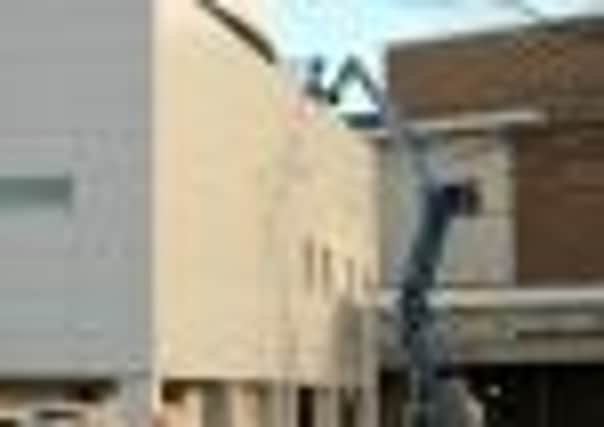Hospital admits pigeon carcass found but denies infestation claims


Contractors from the pest control company Ecolab were spotted at the Royal Infirmary yesterday, and are believed to have been carrying out an assessment of the site. Insiders expect the findings of the Ecolab probe to reveal that birds have been entering internal uninhabited hospital areas.
But NHS Lothian said that the contractors, who used a large cherry picker to access roofs, were only at the hospital on a “routine visit”.
Advertisement
Hide AdAdvertisement
Hide AdThe arrival of the pest controllers came as an investigation found the fly which closed an operating theatre on Friday had come from a pigeon which died in guttering, before the insect entered an internal hospital area through a gap in sealant and made its way to an operating theatre.
Tom Waterson, Unison branch chair for Lothian, claims to have seen a report carried out by Ecolab in August which states there is a colony of 100 feral pigeons at ERI.
Mr Waterson said: “That report was in August and here we are in December and they’re only now getting around to fixing the problem. We pay this company [Consort] £60million a year and they can’t keep the pigeons out. It’s another major failure.
“Why the health board is attempting to cover this up is beyond me, especially in the face of such overwhelming evidence. Whoever is saying there is not a pigeon problem is mistaken.”
In June, two operating theatres were shut for a combined 11 days due to flies from a pigeon carcass entering the sterile rooms. The results from the latest Ecolab survey are expected within days.
George Curley, director of operations in facilities for NHS Lothian, said: “We continue to carry out routine daily checks, have fitted extra netting over the roof and guttering and extra fly screens have been attached to windows and doors as a precaution.”